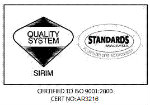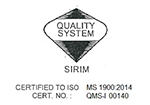Maintaining Dignity In The World Of Social Media
Humans, regardless of gender, family background, ancestry, or race, have natural self-esteem and dignity from the moment they are born. Dignity, or a good name, is a valuable asset that must be safeguarded at all times. No reasonable person would allow his or her dignity to be tainted or treated unfairly by others.
Man is the best events, according to the word of God, which means, “We have honoured the sons of Adam; provided them with transport on land and sea; given them for sustenance things good and pure; and conferred on them special favours, above a great part of our creation.” (Al-Israa’ [17]: 70)
As the best of God’s creation, every individual should maintain self-respect. Having noble morals helps to maintain self-esteem, and this is in keeping with the Prophet’s words, “The best amongst you are those who have the best manners and character.”
The present social environment, in contrast to that of 10 or 20 years ago, is virtual and without boundaries, and moral individuals will not share things that are too private in order to bring their own dignity into question. However, some people believe that every individual has complete freedom. These people will be more prone to making mistakes. They may overlook important considerations such as what can and cannot be shared with the audience due to their attempt at garnering attention or gaining followers.
When there is a quarrel in a marital relationship or a problem with a neighbour, these private matters that are less ideal to be disclosed to the public. Instead of using the social media, which is open by nature, there are other platforms that are more ideal for solving these challenges. In fact, it will simply serve to highlight the ugliness of the individual who shares it.
It is important to note that Islamic principles and guidance do not imply that the religion is closed, narrow-minded, or anti-technological progress. Technology is a tool that humans have developed to make their lives easier and more comfortable. When it comes to religion, its role is to guide people so that the sophisticated tools created can be used to their full potential without causing harm to those who use them. The use of the social media, on the other hand, can be arbitrary, with any story being shared with the public without hesitation, exposing the individual’s own shame.
When everyone has self-esteem and dignity, it means that everyone should care for the dignity of others in the same way that he or she cares for his or her own. As a result, showing respect for others through being mindful of one’s actions and attitudes is something that must be prioritised.
In terms of communicating and socialising with others, Islam has already taught its adherents about the principles and manners as Allah’s words in the Qur’an state:
“O ye who believe! Let not a folk deride a folk who may be better than they (are), nor let women (deride) women who may be better than they are; neither defame one another, nor insult one another by nicknames. Bad is the name of lewdness after faith. And whoso turneth not in repentance, such are evil-doers.” (Al-Hujurat [49]: 11)
Not upholding high moral ideals when socialising, regardless of the medium, can lead to not just a person’s degradation, but also to human strife. The subsequent conflict may jeopardise the dignity of others and result in defamation issues.
Defamation is the act of communicating false statements about another person in order to harm their reputation. The words used have the potential to damage a person’s reputation in society, as well as alienate or shun them. A person who becomes a victim of slander will be despised by society as a result of the slander. For example, calling someone a “prostitute,” “cheap lady,” “pondan,” or other derogatory terms might elicit resentment and make the individuals involved feel embarrassed.
If this occurs, the victim has the right to sue for damages in court. Degrading one’s dignity can be viewed as harming one’s reputation and future prospects. Not to mention if the harm to one’s reputation will have an impact on one’s career and source of income. This has happened before, and the defendants have been forced to pay a variety of damages, including general, aggravated, and exemplary damages.
As stated at the outset, a good name is priceless, and Islam places a heavy emphasis on maintaining dignity among its followers. As a result, hauling those who do not keep good morals while socialising on the social media to court until they are caught in defamation is not an activity that violates religious bounds. The goal is to convey a lesson to the community while also preventing the culture from continuing to be unhealthy.




